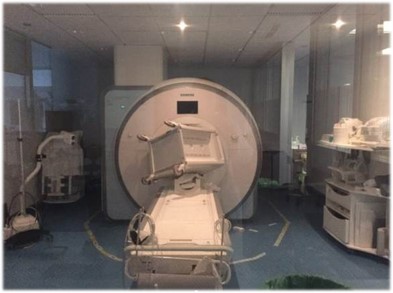
From the point of view of the industrial tool, titanium has a series of properties that make it preferable for some industries, and which, in the case of using other steel alloys, can involve a high physical risk and economic cost.
Do you want to know what they are? Read on.
Titanium is of great help in fields such as medicine, since, thanks to its hypoallergenic quality, it can be used for human implants.
However, in industry it has certain advantages:
- Low density: It is 45% lighter than steel.
- Stainless: Much more so than stainless steel itself, which allows it to be used in corrosive environments.
- Extremely resistant to acid: This property makes it perfect for the chemical industry, since its durability is much higher.
Certainly, in these two cases above, you can always have an alternative to titanium, since its cost is high.
However, as mentioned at the beginning, there are environments where the use of tools made with an alloy that includes titanium is mandatory, due to its non-magnetic capacity.
What does this mean?
Wherever there are high magnetic fields, such as a magnetic resonance scanner, or large synchronous motors used in ships, one cannot access with the tool that is attracted by magnetic fields, because the speed and force they reach in that attraction can be very very dangerous.
As an example the image below:

It happened in a hospital in Oviedo (Spain), where probably someone put a trolley that was not magnetic, or that inside had material that was not magnetic, and when turning on the MRI scanner, that is the effect it generates.
It demonstrates quite well the danger of using magnetic tools in environments that have high magnetic fields.
Where are these tools used because of their non-magnetic properties?
- In defense
- On ships with synchronous motors
- In railway works
- In the joining of some of the wagons where the element being used is magnetic
- In some space applications
- In some high-tech laboratories that generate magnetic fields
- In pharmaceutical industries
In these last two points, the titanium tool is used, not so much for its magnetic property, but for its ability not to oxidize and not to be contaminated.
But fundamentally where they are most used is in magnetic resonance equipment, because today there is no other possibility of safely using any other type of tool.
Ti6Al4V
This is the alloy we have selected for the manufacture of our titanium tools.
The best available today for critical, special and magnetic applications requiring high mechanical capacity:
- Hardness: 33-43 HRc
- Tensile strength: 900 N/mm2
As you can see, titanium tools cannot reach the same hardness as conventional tools, so we recommend to be careful when using them, avoiding overexertion.
We invite you to find about our wide range of titanium tools.

